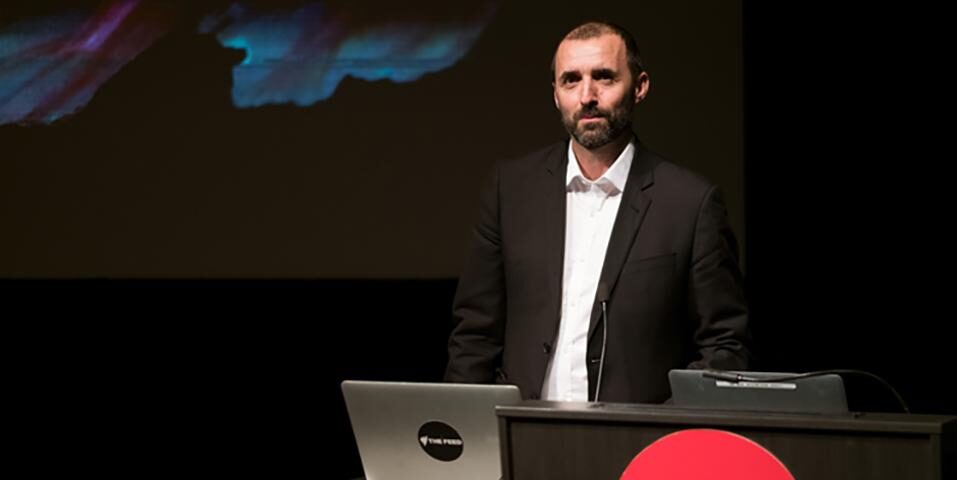The Screen Diversity and Inclusion Network (SDIN), which includes many of Australia’s leading media organisations as well as screen agencies, has launched a Charter to promote diversity in the sector.
The SDIN is a new network committed to improving the diversity of talent and influences that shape Australian screen content. Members of the SDIN include Foxtel, the Australian Film Television and Radio School (AFTRS), ABC, SBS, Network Ten, The Australian Subscription Television and Radio Association (ASTRA), Screen Producers’ Australia (SPA), FreeTV Australia, the Australian Screen Industry Group (which represents all the Guilds), MediaRING, Screen Australia, Create NSW, Film Victoria, Screen Queensland, Screenwest, the South Australian Film Corporation, Screen Territory, Screen Tasmania and ScreenACT.
In order to be member of the SDIN, an organisation needs to officially commit to the Charter.
SDIN Chair (and CEO of AFTRS), Neil Peplow, said: “We want to ensure that Australian screen culture reflects the dynamic diversity of contemporary Australia. We want our stories to be enriched by a range of perspectives and experiences. And we want them to be created by our best creative talent, whatever their background. The Screen Diversity and Inclusion Network charter sets us up to make these ambitions become reality.”
The SDIN will set targets for industry change and evaluate progress via sector-wide measurement tools.
Foxtel CEO, Peter Tonagh, said: “To address this important issue will require engagement across the entire industry. We want to bring new talent and fresh stories into our sector and to deliver that there needs to be opportunities for new creative voices at every stage of their careers.”
Pam Longstaff, Acting CEO Free TV Australia, said: “Free TV welcomes this initiative. Our industry provides Australians with thousands of hours of home-grown content every year. A diversity of talent in the screen production sector sustains Australian story-telling and allows local voices to flourish and shape our national identity.”
Following the release, in 2016, of AFTRS’ Inclusive Pathways Framework which identified the ‘diversity problem’ in the Australian sector and Screen Australia’s Seeing Ourselves: Reflections on Diversity in Australian TV Drama which revealed a strong bias away from diversity on screen, as well as PWC’s 2016-2020 Entertainment and Media Outlook, which noted that the lack of diversity in Australian media industries was ‘dragging down growth’, the SDIN is seekingto progress diversity objectives and address barriers to inclusion in the sector. The Network will also support sector-wide initiatives and approaches and encourage partnerships between members.
Screen Australia CEO, Graeme Mason, said: “We have a lot of work to do to ensure that the Australia we see on our screens more accurately reflects the diversity of Australian society, as the Seeing Ourselves study highlighted, and we know that Screen Australia can’t do this alone. It is encouraging to see The Screen Diversity and Inclusion Network (SDIN) bring together television networks, screen agencies, industry bodies and AFTRS who collectively have the ability to make a genuine change across all areas of the screen sector.”
SDIN members are already working together on a range of initiatives, such as intensive professional development for new practitioners from underrepresented groups across Australia, internships, placements and attachments.
ABC Managing Director, Michelle Guthrie, said: “As the Australian community becomes increasingly diverse, the ABC and the wider media industry needs to represent all Australians if it is to remain relevant to audiences. This means embracing diversity both behind and in front of the camera.”
SBS Managing director, Michael Ebeid, said: “Diversity is at the core of SBS. Driven by our unique purpose, we’ve been promoting the benefits of diversity in all its forms for more than 40 years. We’re committed to improving the representation of diverse communities within the media – not just in the faces reflected, but in the perspectives shared and in the stories explored – because ensuring our industry is truly representative of contemporary Australia, on and off our screens, encourages a more inclusive society and contributes to a successful and cohesive multicultural nation.”
SPA CEO, Matthew Deaner, said: “We want Australian creative practitioners and Australian content to draw on our best and to reflect who we are to ourselves and the world. We can only do that if we ensure that our screen industries properly reflect our diverse culture by addressing diversity in front of, and behind, the camera and we hold ourselves to account.”
Screen Queensland CEO, Tracey Viera, said: “The need for more diversity in how we show and tell the stories of contemporary Australia is an issue that the entire industry has identified and one that we are working collectively to solve. It’s incredibly encouraging to see the industry come together and sign the SDIN charter which is an important step in ensuring that each and every one of us sees our work through a ‘diversity lens’.
Network Ten Chief Executive Officer, Paul Anderson, said: “The Screen Diversity and Inclusion Network (SDIN) is an important and welcome industry-wide initiative. Australians want to see Australian stories on their screens and it’s vital that those stories reflect the diversity of our community whenever possible. What happens in front of the cameras, of course, is only part of the story. It is just an important to embrace diversity and inclusion in our workplaces.”
Two launch events – at AFTRS in Sydney (on 31 July) and ACMI in Melbourne (on 7 August) – will showcase the work of creative practitioners from organisations connected to communities underrepresented on and behind our screens including: Information and Cultural Exchange (ICE), Curiousworks, Accessible Arts, Urban Theatre Projects, Multicultural Arts Victoria, Arts Access, Footscray Community Arts Centre, Diversity Arts Australia and Open Channel.
